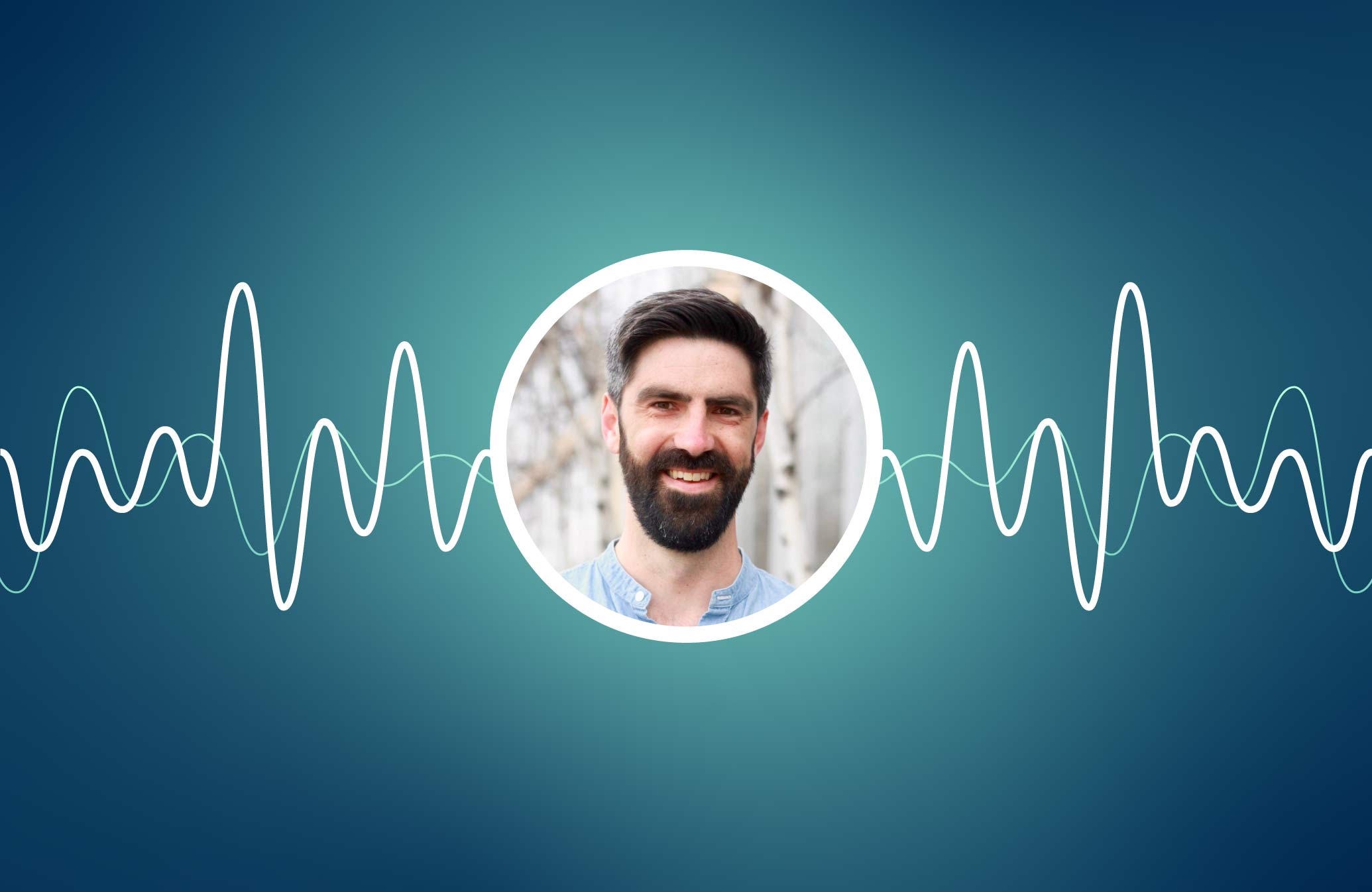Listen Now
Episode Transcript
Announcer [00:00:00] Welcome to RadioRev, podcasting from the heart of healthcare in Minneapolis, Minnesota. This is the podcast for change makers looking to do more than just health engagement. It’s about getting people to take action and do things that actually improve their health. It’s a radical idea, right? So we’re talking with the leaders, innovators, movers, and shakers who are bringing new ideas, inspiring others, and leading the way.
Jenn [00:00:26] My name is Jenn Dellwo, and this is RadioRev. Today, Louise Briguglio, Product Strategy Leader at Icario, is here to talk about preventive screenings. Thanks for being here.
Louise [00:00:35] Thanks for having me, Jenn.
Jenn [00:00:36] So to start, tell us what your favorite ’80s song is.
Louise [00:00:39] Oh, that’s a good question. I would have to go with “Blister in the Sun” by the Violent Femmes. It’s a good dance song. Always gets me going. {music plays}
Jenn [00:00:53] My brother loved that song growing up. He was super into it. So today our topic is preventive screenings. And I know this is a really tough topic to tackle for health plans, mainly because it’s a real challenge to motivate people to take action by scheduling a screening or going in for a wellness visit. What are some of those hurdles for health plans?
Louise [00:01:12] I think for health plans, getting people to do those preventive actions can be a challenge. For one thing, you really need everybody to do it, right? When it comes to something like the flu shot, ideally every single one of your members is going to get the flu shot. Health plans are really great and have a lot of mechanisms in place to often reach out to people that need high-touch interactions. So, for example, someone who has multiple chronic conditions are often assigned case managers. They may be able to talk to nurses on the phone. So a lot of the methods that our customers have developed to be really effective aren’t as effective when we’re talking about getting millions of people to get their flu shot. This is a problem of scale, and the resources that our customers tend to use before they have something like Icario—they’ll send out mailers, you might see billboards around the flu. But at the end of the day, that really lacks the personalization that works so well in these other situations. When a member can talk to a nurse on the phone, talk to them about what’s going on with them, that nurse can adapt his or her language to be exactly what the member needs to hear in that moment to make sure that they’re performing the health actions they need to be taking.
Jenn [00:02:28] Sure. And it’s super interesting that you mentioned the billboards, because it seems to me that a lot of preventive screenings, especially for specific types of cancers or things like the flu shot, there’s a really high degree of public awareness. So the importance of screenings and early detection is already well-known. But health plans often experience low participation rates in preventive screening programs. Is it one of those things where people think, “I don’t feel sick. I feel fine. I don’t have a family history. Therefore, this doesn’t apply to me.” Or is there something else going on?
Louise [00:03:01] Yeah, definitely. That’s the thing with preventive screenings is it’s fundamentally preventive. So it’s not something where someone is saying, “My knee hurts, I should get it looked at.” Some people have explained to me that this is very prevalent in Americans in particular. But often it’s when someone’s mobility is affected that they decide to go into the doctor. And that’s the very nature of a preventive screening is well, there’s nothing wrong with me right now. Sometimes even those people who do have a family history can put off that appointment. Life gets busy. You have a lot of competing priorities. And there’s just enough friction in place to call and schedule the appointment, to take the time off of work. We even hear about things, something that we might think of as simple for the flu shot, and a relatively minor tradeoff, but a lot of times when people get the flu shot, they complain that their arm hurts. But when we’re talking to someone and their job is working in a warehouse lifting 40lb boxes every day, having an arm that hurts is a really big hurdle to deal with. And that becomes a pretty good argument for not getting the flu shot when they’re making those mental tradeoffs.
Jenn [00:04:17] Yeah, that actually makes a lot of sense. So what challenges come up when trying to engage members to take preventive actions from a health plan’s perspective?
Louise [00:04:27] So like I said, it’s all about overcoming those barriers. And a lot of times when you’re talking to a member about a preventive action, again, it’s very abstract. It’s something in the future. So there’s no real pain that you can latch onto. So you have to try to make the negative outcomes and the repercussions of not getting that preventive screening feel really real or tap into something that is really real to that member in order to create that activation energy, enough energy that says, “I’m going to conquer the inconvenience. I’m going to take the time off of work. I’m going to pick up the phone. I’m going to make the call. And I’m going to go schedule this screening, or I’m going to take this test kit and mail it back in.” And doing that often requires some personalization and some understanding where the member is at and what they need to hear. And again, like we talked about before, that can be really, really hard. When you’re trying to do this for millions of members.
Jenn [00:05:28] Yeah, definitely. And I’m going to jump to a different question because it’s making me think. So switching gears to members, we recently wrote a blog post about Marie. She was a member who was diagnosed with cancer. And that’s absolutely one of the things that we talk about in that case study is she lives with her adult daughter, and she’s taking care of her grandkids. So she’s not thinking about herself. She’s only thinking of the kids. So then when she finally does go in for the screening and she finds out that she has cancer, she needs to be reactionary instead of being preventive. So it’s a lot more about “Oh, no, I’m not going to be able to be there for my kids and my grandkids anymore.” So directing messages to her that really resonate on that level in the future will be super important.
Louise [00:06:13] Exactly. And that’s exactly the kind of thing that we’re always trying to leverage, is our understanding of what will make the action we’re trying to get someone to take, what will make it feel more real and more pressing. So we’ll do things like leverage someone’s responsibility as a caregiver, where we can understand someone’s home situation. Is someone a parent? Is someone a caregiver to their parent? Social Determinants of Health, things that can give us a bit of a picture into that member to make something more real. People who know Icario know that we play with a lot of different sort of message themes. Sometimes those message themes are, frankly—there’s one I always call it fear of missing out. What we actually do is we leverage people’s feeling that they want to do what’s expected of them and what other people are doing. So one message theme we can sometimes leverage is people like you are doing this. And that can be really effective with a certain demographic and a certain type of person. But again, like I said, that message may be less effective than a “You have a responsibility as a caregiver” message, which could work really well for a different person.
Jenn [00:07:26] So from the health plan perspective, why is it important for them to think about preventive care differently than other health action programs they might be running?
Louise [00:07:36] So, again, the real key is realizing that for your members, this is a pretty abstract concept. They’re not sick right now. You’re trying to have them do something to protect their future selves and to avoid the possibility of getting sick. So it’s not urgent in their minds. And actually, a lot of our instincts for those of us who have been in population health, are actually dead wrong. So a lot of the messaging that currently happens around population health, it really relies a lot on statistics. Now, did you know that 60% of people will contract XX? And so what we’re doing is we’re trying to motivate people to do an abstract thing, prevent your future self from getting sick with something that’s even more abstract, with population statistics. When people hear those population statistics, they think, “That’s not me. I’m not a statistic.” So really, what’s important is leaning again on those personal messages that make things real. “Other people like you are doing this.” “You as a caregiver have a responsibility.” If we’re talking about something like the flu, “Did you know the flu is now actually in your neighborhood?” Anything you can do to make it more concrete and to make it more immediate is far more likely to precipitate action. When it comes to preventive care programs, you’re asking the member to take an action for something that could happen in the future. It hasn’t happened. So it’s not concrete yet. In fact, I can tell a little story about someone that we spoke to in the field when we were doing our field research. So we were asking her about vaccines, and in particular the flu shot and whether it was something that she didn’t get. She said emphatically that she did not get the flu shot. And in fact, she would be someone that we would describe as anti-vaccination. And I think a lot of times people think that anti-vaccination folks, maybe if they knew what we knew, they would get the flu shot. And what we find when we’re talking to people, it’s actually the opposite in the sense that it’s not that they’re under informed. It’s that they’re very informed. They’ve done a lot of research. They have a really staunch opinion about this and what it could mean for them. And those people are, to be honest, very, very hard to persuade. And you’re certainly not going to persuade them with facts. If you’re going to get anywhere, it’s going to be on a personal argument rather than a fact-based argument, because for every fact you have, there’s a counter fact. A really interesting thing, too, is that a person can have that attitude, which we might think of as pretty skeptical of medicine, about something like preventive screening and have a totally different attitude toward something else. So to your point, they could have a really different attitude about something that’s acute. So the same person we were talking to that had an anti-vaccination attitude, had to have a hip replacement. And as we were talking to her, we were in her home. She actually went and she collected some X-rays that she had of her hip that her doctor had taken where she was feeling the pain. It wasn’t abstract. It was real. She actually hurt. Her doctor was able to show her what was going on through her X-ray that needed to be fixed, and she got the surgery and she had amazing things to say about that doctor. She was very trusting of his advice. So realizing that people can actually be really nuanced in their attitudes toward preventive actions versus a chronic condition versus an acute condition.
Jenn [00:11:09] So figuring out which messages to send to those people who you know have those specific beliefs is really important in order to get people to take action.
Louise [00:11:18] Exactly.
Jenn [00:11:19] OK. So thinking about breast cancer specifically, we’ve read surveys that show that one in four women over the age of 50 report not being up to date with the breast cancer screening. So it’s interesting to me that this one type of cancer has a really high degree of public awareness. And when it’s discovered in its early stages, it’s often treatable. But if it’s found at a later stage, an advanced stage, it can be fatal. So why aren’t more women going in for preventive screenings? I’m sure it could have something to do with those stats, and they don’t really care, or they are busy, and they don’t feel the symptoms, things that we’ve talked about earlier. But where do you think that disconnect is?
Louise [00:12:01] I think there are probably epidemiologists who have studied this intensely and really have a lot of thoughts about what to do here. I don’t want to pretend to be an expert in it, but I can share some of the things that we tend to hear in the field when we are talking to our customers, members, and patients. And I will say when we’re talking to folks, what we hear a lot about is just inertia, just people being busy with their day to day, people knowing that it’s something that they need to do. So often, particularly something with breast cancer, it’s not about awareness. People know that breast cancer is real. People know that they should be getting mammograms. Rarely do we talk to someone who says, “What’s a mammogram?” Which, with some other screenings that actually can be part of the barrier you’re overcoming. It usually has to do with making time for it and making it urgent enough. So, again, part of what you’re trying to do is you’re trying to find a way and an opportunity to bring this to the front of someone’s mind. Sometimes it can be as simple as a life change, the idea of aging in. So when we’re interviewing people and they’re talking about when they made a change to their health, they sort of say, “Well, I guess I’m an adult now. Or I guess I’m of an age now where….” And that to me feels like something that can be pretty actionable for our customers and health plans, is just thinking about those milestones, thinking about those things that are meaningful both to you as a health plan, but also actually meaningful for your members, those human milestones of reaching a certain age and realizing that you need to change habits. That can be just one example of a way to make something concrete and pressing for your members.
Jenn [00:13:50] Sure. And from a member perspective, it makes sense to me why preventive screenings matter. But from a health plan perspective, why do they care if people come in for these screenings?
Louise [00:13:59] So there’s a lot of reasons that our customers care about preventive screenings. One is at the end of the day, they benefit when their members stay healthy. It lowers claims costs in the long run. There’s also an increasing amount of pressure from different organizations to focus on preventive action. So it’s a huge focus from CMS. It’s a huge focus from different employer groups, everyone, and for providers as well. So incentive structures are actually being changed, too, in terms of how people are actually paid, to reward organizations that are keeping patients and members healthy.
Jenn [00:14:47] Interesting. Well, it’s good to know that they do care about keeping people healthy too, at the end of the day.
Louise [00:14:51] They do. Yes, they do.
Jenn [00:14:53] So is there anything else that you want to share about preventive screenings before we wrap up?
Louise [00:14:59] No, other than it’s an exciting moment, I think, in healthcare right now where there are so many people who are thinking about this problem, how do we keep people healthy? How do we keep people out of the emergency room? How do we keep people from getting sicker? So it’s a really important topic that Icario cares a lot about. And it’s been really exciting to participate in the conversation.
Jenn [00:15:24] Great. Well, thanks for being here today.
Louise [00:15:26] Thanks, Jenn.
Jenn [00:15:27] For those of you that will be attending the RISE conference in Nashville next month, Louise will be leading a roundtable on Monday, March 18 at 4:30 PM. And it’s going to be a really fun topic. We’re incorporating “Hamilton” themes, so if you’re familiar with the musical, our topic is “10 Duel Commandments of Personalization in Health Engagement.” Is there anything you’d like to share about what people should expect?
Louise [00:15:47] Yes. So today I’ve been talking a lot about the behavioral science aspect of what we do. At the roundtable we’ll be talking about how behavioral science and data science can work in tandem to drive members to action.
Jenn [00:16:00] It’s going to be a lot of fun. So be sure to check out the roundtable and then also stop by the Icario booth. We’ll have some fun giveaways, and you’ll be able to take your picture with our Alexander Hamilton cardboard cutout and learn more about how to get a health action program started. It’s going to be fun.
Announcer [00:16:15] Thanks for joining us for the RadioRev podcast, brought to you by Icario. If you found today’s conversation as informative and energizing as we did, please take a moment and subscribe to the podcast. As always, we invite you to learn more about us and check out all of our content at dev-revel-health.pantheonsite.io/RadioRev.
Inside the Episode
Louise Briguglio, Product Strategy Leader at Icario walks through the importance of preventive screenings and the challenges health plans face when trying to engage their members to take preventive actions. In this episode, Louise dives into several discussion points, including:
- Why we have to think about preventive care differently than other health action programs
- What engagement hurdles exist to get people to take preventive health action
- Personal motivations and the role of behavioral research
To keep the conversation with Louise going, connect with her on LinkedIn.
“When you’re talking to a member about a preventive action, it’s very abstract so there’s nothing you can latch onto. You have to try and make the repercussions of not taking action feel very real in order to create that activation energy.”

Louise Briguglio
Product Strategy Leader
Can’t get enough of RadioRev?
Check out all of our episodes to stay up-to-date on the latest in healthcare innovation, social determinants, and health action.




